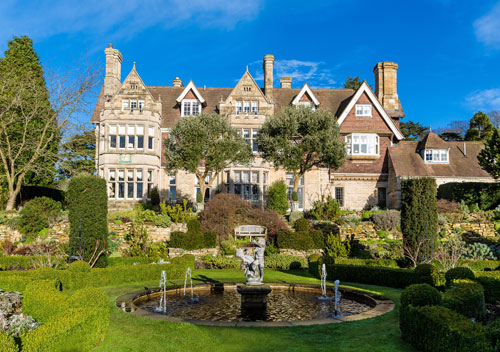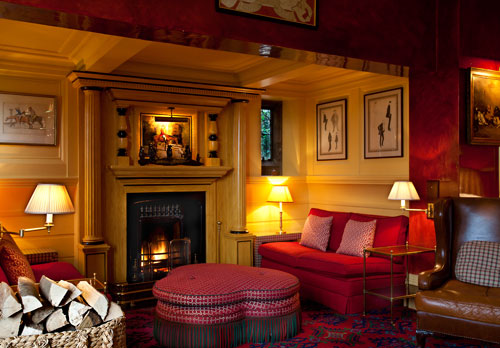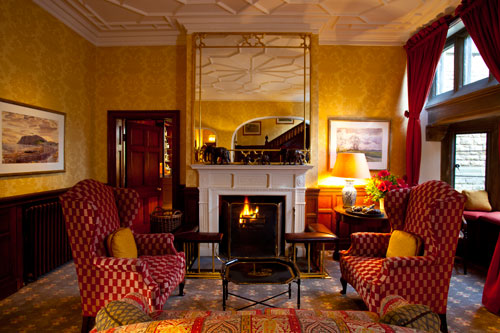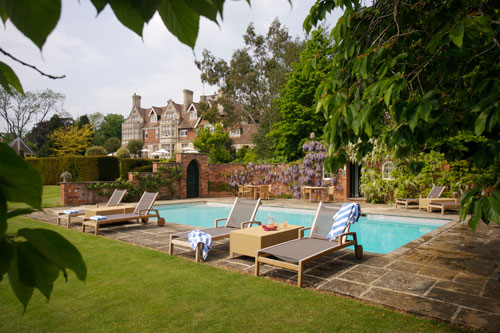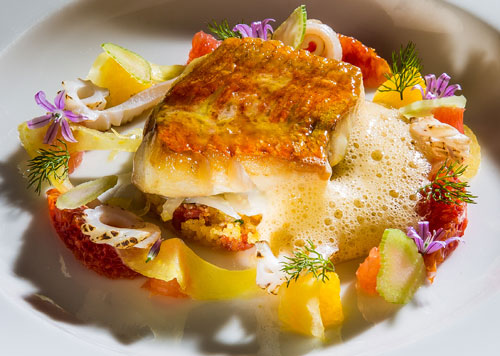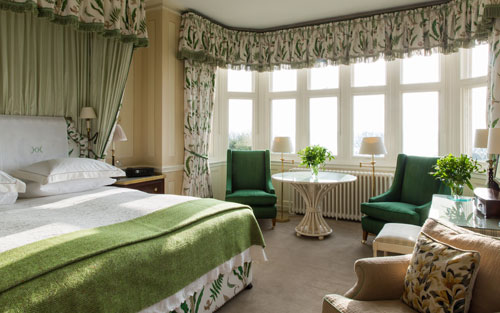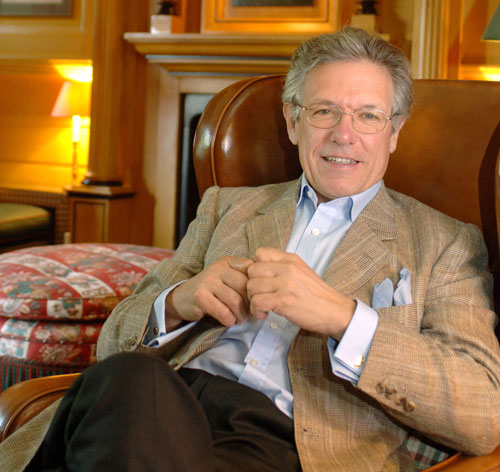The Caterer interview: Tim Hart
A leading player in the country house hotel market for 35 years, Tim Hart, the owner of Hambleton Hall, tells Janet Harmer
How has the country house hotel scene changed during your 35 years in business?
The early years revolved around the love affair with nouvelle cuisine and the English countryside, coinciding with the appearance of the colour supplements in the weekend newspapers, which provided us with a wonderful publicity platform - the editors needed to fill their pages. Along with hotels like Gidleigh Park, we were able to offer food and interiors. But this was so overdone during the 1980s that it led to a publicity drought during the 1990s. At the same time, the recession of the early 1990s helped fuel the rebellion against elaboration and nouvelle cuisine, with the arrival of the back-to-basics movement. Restaurants like Bibendum in London, which offered a very simple style of cooking, became the flavour of the month.
The 1990s also saw the rise of bigger, more corporate-focused hotels with lots of meeting rooms, such as Hanbury Manor. There was also a change in where our business came from. During the 1980s, 30% of our business came from the USA, thanks to the favourable exchange rate. It went away during the Gulf War and never came back. American guests today account for only 5% of bookings.
Why is Hambleton Hall one of the few family-owned country house hotels still operating at the highest level today?
More than anything, my longevity in the business is due to my enjoyment in running the hotel. I've enjoyed it because I haven't been nailed to the front desk or any other specific job in the hotel. I'm at the hotel two to three days a week and I'm involved in the wider business the rest of the time. I have a very strong staff. It is always a pleasure to be here. People think that selling a business to make money will be a solution to their problems. But that would not be the case - I can't see what having that money would offer me. I've never considered selling up. I had an offer once from Von Essen, which I rejected.
The bar
A huge draw for us has been having a great chef. Aaron Patterson, who originally joined us in 1984 before going away and coming back as head chef in 1992, has been an important part of our success. Whereas once restaurants like Le Gavroche would have a large number of customers from the City who were willing to spend a lot of money on drink, now those same people tend to be in work at the crack of dawn and don't spend in the way they did before, on a long lunch with lots of fine wines. In contrast, guests come to us specifically to take their time and enjoy their food and wine in a very leisurely manner.
Who are your main guests?
They tend to be divided between those guests who come at the weekend; those who are celebrating a special occasion any night of the week; and those who work in certain industries - such as the media - where they no longer work a traditional Monday to Friday week. They may work for 10 days, then have two or three days off, which is when they come to stay with us. It is generally easy to fill the hotel at the weekend, while during the week we are more dependent on the grey pound.
We've benefited from the upheaval of the 1990s when a lot of people at higher levels of business were paid off handsomely. They are now in their 50s or 60s and tend not to be working in a regular, conventional job, but live a diversified, freelance life.
The real strength of our business has always been that we rely on private individuals spending their own money. Today, around 90% of guests are British, with just 5% from the USA and 5% from the rest of the world.
The entrance hall
Would it be possible for an independent operator to do what you did 35 years ago when you opened Hambleton Hall?
We opened the hotel at the beginning of the Thatcher era, which was a time when properties like this were comparatively cheap to buy. We paid £110,000 for the hotel in 1979 and spent a further £400,000 doing up the property. Today, it would probably cost around £3m to buy the property and the same again to convert it. So that does make it much more difficult for a private investor to get started in a hotel at this level.
I had to put up half the money - around £250,000 - to buy the hotel and refurbish it; the rest came from the banks. HSBC was always very supportive to the business until 2008, when the recession hit. Having been a good customer of theirs for more than 20 years, I found the bank suddenly became completely disloyal and tried to squeeze me with additional fees. So I looked around at other possibilities. Fortunately, Santander came to the rescue and has been excellent ever since. The way we were treated didn't make sense as we were a perfectly viable business.
How is the hotel doing now compared to the highs and lows of the business?
Well, the challenge of the five years after 2008 was that occupancy remained static at around 68%, but we couldn't get the rate up at a time when all our overheads, including food and fuel, were increasing. Our profits were squeezed. Since 2013 things have returned to a normal, satisfactory level of profit on a turnover of £3.1m. Occupancy is now at around 71%, with better rates and better spend in the restaurant.
The business has diversified over the years. How has that come about?
During the mid-1980s, the hotel was pretty full most of the time and we thought about expanding by converting the stables. Instead, in 1986, we opened the Ram Jam Inn on the A1, which was a great idea that didn't work out. It was roadside restaurant producing upmarket food - grills, salads, pasta dishes. We offered an alternative to Little Chef, but for a restaurant like that to work, it really needs to be a national brand, because as people drove past, they had no idea what we were about.
Pan-fried fillet of red mullet with fennel, citrus, squid and chorizo
We then went on to launch Hart's restaurant, which is located in part of the former general hospital in Nottingham, followed by Hart's hotel - located in a new building situated on part of the old ramparts of the city's medieval castle. Fortunately, these businesses have performed much better than Ram Jam. The restaurant offers decent, no-frills food and is probably the best in Nottingham, behind Restaurant Sat Bains, which has two Michelin stars. Hotel rates are notoriously low in Nottingham, but Hart's is the only one doing something a bit different - it is a boutique property - and we achieve an average room rate of £120 across 32 bedrooms.
In 2008 we launched Hambleton Bakery, which from day one has been the fastest-growing part of the business. The focus is on artisan breads, savoury bakes and cakes. It was marvellous to discover that good bread does very well in a downturn. Customers still want to enjoy a small treat when times are tough.
Wilted foraged greens and roast lamb sweetbreads with St George's mushrooms
We now have five shops and 70 wholesale accounts with hotels, restaurants, cafés, food stores and delicatessens. We also supply our own businesses. I felt there was an opportunity for the revival of good bread akin to the Campaign for Real Ale. There has been something of a rebellion in food production against industrialisation - we wanted to be part of that. There is potential for further growth, with more shops and more wholesale businesses, but we would prefer to consolidate within the region rather than dilute the product by going further afield.
What has been the biggest challenge facing Hambleton Hall over the years?
These things go in cycles, but it has always been that there is not enough staff when we are overrun by clients, and too many staff when we have too few clients. Across all the businesses, we currently employ around 200 staff with 65 in Hambleton Hall.
What is your most important source for guests?
Word of mouth accounts for 50% of our business and then the rest come via Relais & ChÁ¢teaux and Pride of Britain - we are members of both - as well as guides such as Michelin, the Good Food Guide and the AA. There's also newspaper and magazine articles. The traditional guides are not as significant as they once were, and online searches are not hugely important to us, as Rutland is not a strong tourist area.
We have an online booking site, but have not yet created a mobile site: so far we have regarded it as too complicated and too expensive. Over 70% of our bookings still come by telephone or email. We also receive bookings from travel agents in the USA.
Have you ever considered adding a spa, like so many other country house hotels?
We opened a bakery instead of a spa. I think you need at least 50 bedrooms to make a spa work.
How do you account for Hambleton's continued success over 35 years?
We have continually made improvements, but without changing too much. Food has always been a very important part of our offer, along with a strong wine list, a beautiful setting, strong interiors by my wife Stefa, great comfort and a warm welcome. Ultimately, it is the depth of experience we have here which ensures the hotel always runs smoothly. The team includes Graeme Matheson, our restaurant director, who has been here for 29 years, executive chef Aaron Patterson [24 years], general manager Chris Hurst [14 years] and sommelier Dominique Baduel [14 years].
What are your future plans?
Well, I'm not planning to retire - in fact, I'm trying to stave off retirement. I'm a non-executive director of my sons' restaurant business [Sam and Eddie Hart operate Quo Vadis and three branches of Spanish tapas business Barrafina in London]. They have benefited from growing up around the hotel, but the restaurants are very much their business - it is neither my money or my know-how. They in turn, along with my daughter-in-law Kate Levin [married to third son James] are non-executive directors of Hambleton Hall.
Hambleton Hall
Hambleton, Oakham, Rutland LE15 8TH
01572 756991
Owners Tim and Stefa Hart
Head chef Aaron Patterson
General manager Chris Hurst
Restaurant director Graeme Matheson
Sommelier Dominique Baduel
Bedrooms 17
Staff 65
Consortia Relais & ChÁ¢teaux and Pride of Britain
Rating Four red AA stars and four AA rosettes, with one Michelin star held consistently since 1983
Room rates From £270 to £450



